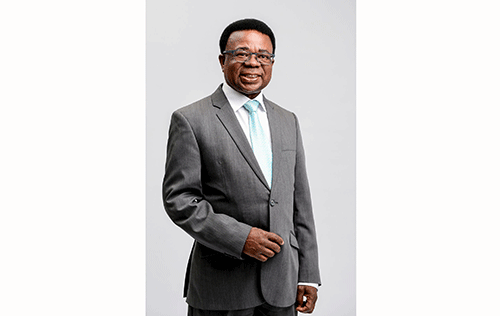David Nuyoma, outgoing CEO and principal officer of the Government Institutions Pension Fund, believes valuable lessons were learned by both the fund and the regulator, the Namibia Financial Institution Supervisory Authority, from the now infamous Development Capital Portfolio saga.
Commenting during a one-on-one exit interview, as he prepares to vacate the position he held for a decade, at the end of this week, Nuyoma said, “Unfortunately, the DCP saga is one of the major misunderstandings in Namibia”.
Between 1995 and 2005, well before Nuyoma joined the Government Institutions Pension Fund (GIPF), the now-defunct DCP disbursed just over N$661 million to 21 companies by way of equity and debt.
Since then, the fund has managed to collect more than N$1.1 billion in dividends, interest and capital repayments.
This means that GIPF’s total profits realised from the DCP as of 31 March 2019 stood at just over N$458 million, with 12 of the 21 investments incurring losses exceeding N$386 million.
“It was a lesson not only for GIPF but also for the regulator,” said Nuyoma last week, noting that the entire DCP fiasco resulted in the regulator drawing up new regulations, namely regulations 28 and 29, to stipulate precisely how pension fund investments must be realised.
GIPF’s DCP commenced in 1995 with the intent of providing development capital to local businesses with growth potential and developmental impact.
The programme was intended to promote economic growth and to develop domestic industrial capacity but was soon fraught with irregularities that left the fund and law enforcement agencies scrambling for answers.
“From our side, we have been looking at what we can do and what measures we can implement to mitigate investments. I say mitigate because in the investment world, you can never guarantee a return because you do not know what will happen tomorrow,” Nuyoma explained.
“There is always something that can happen. For instance, who would have forecast that war would have broken out in Europe? These things impact us all in a significant way and you have to remember to invest in those assets that are essential,” Nuyoma said.
He added that “somehow”, when the DCP matter came to the fore, local media reported that the entire N$600 million was lost. “This is not true,” said Nuyoma.
Admitting that some DCP investments are still being investigated by law enforcement, Nuyoma explained to New Era that the entire portfolio contained certain underlying investments.
“Some of these investments succeeded, and those were actually more than those that failed. This means that in 2019, when we looked at the N$600 million deployed, more than N$1.1 billion was actually realised out of those investments. So, there was actually a profit made out of the DCP,” said Nuyoma.
He added that while some of the underlying investments did not produce any profits, there are still some specific investments that are still yielding good results.
Said Nuyoma: “The other day, I was at the Windhoek Country Club and Resort, and people don’t know that hotel was one of the investments made through the DCP. I was the one who personally went to collect the last check from the WCCR. We have good investments. We are the single largest investor in FNB, with over 15%. We get excellent value out of that portfolio”.
Now, as he prepares to leave the GIPF after more than 10 years at the helm, Nuyoma had some encouraging words for the successor: “GIPF has matured operationally. It really consists of a team of professionals.
The advice for my successor is to follow the strategy. This is a team effort, and one important ingredient for success is to have a good relationship with the board. Have a transparent, respectful, courteous and professional relationship with the board.
“Remember that as a pension fund, the board is the one accountable and tasked to manage the affairs of the fund. The board then delegates through the CEO and principal officer. What has made us tick throughout is the relentless pursuit of strategy and constantly hitting a 90% target of deliverables.”


